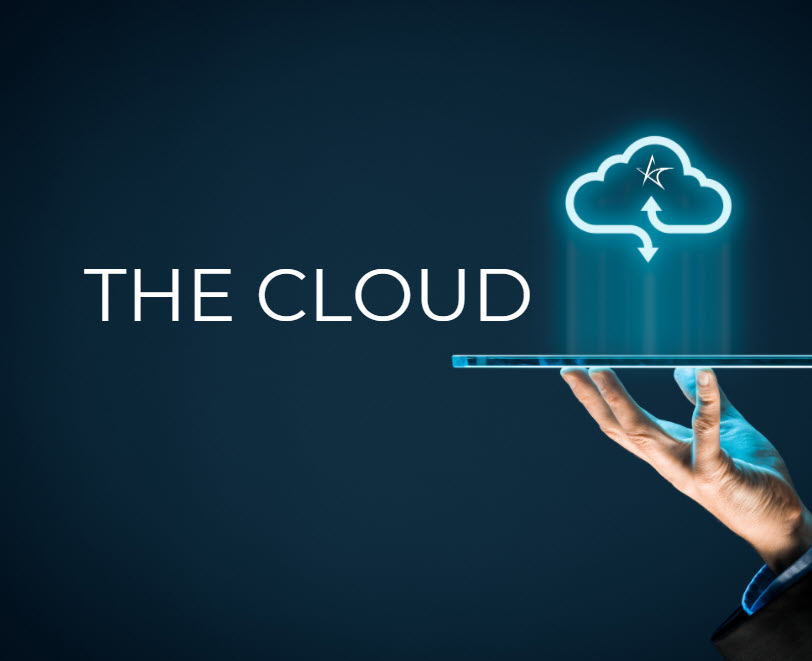“The Cloud”- a term widely used and yet often misunderstood or perceived as “mythical”. Where is the Cloud? Why do people use the Cloud? Why has LinenMaster been cloud-based for over ten years? Is it safe? Let’s take a closer look:
What is “the Cloud”?
According to GCF Global, “the Cloud is the Internet—more specifically, it’s all of the things you can access remotely over the Internet. When something is in the Cloud, it means it’s stored on Internet servers instead of your computer’s hard drive”.
Working with LinenMaster cloud-based software
Being on “Cloud 9” is a way of saying you’re in a state of perfect happiness, which is likely to occur if your business is equipped with LinenMaster software!
All kidding aside, we chose to be cloud-based a long time ago because:
- Using the Cloud allows LinenMaster to relieve the burden of high-cost hardware on our clients
- Security features are built-in for peace of mind with no additional security charges
- The Cloud has redundant backup systems so LinenMaster maintains an uptime of more than 99%
- We can scale infinitely with customer needs – whether you have one laundry or one hundred, LinenMaster can grow with your business
- We use AWS (Amazon Web Services) to provide our clients with access to the latest technology known to the market
- We can remotely perform most maintenance including major upgrades
- Data is stored remotely so if there are technical or other issues (a natural disaster) at the laundry, your data will be safe with LinenMaster
Lastly, the low-maintenance nature of the Cloud allows us to support one version of software so we can provide a best-in-class solution at the lowest cost possible. It also provides our team with more time to focus on product developments and improvements – just another plus of being cloud-based!
Is it safe to use “the Cloud”?
According to Norton, the large antivirus company, a properly managed cloud is much more secure than other systems:
How secure is the Cloud?
It’s natural to wonder if your data is safe when it’s stored in the Cloud infrastructure. After all, your files, photos and videos are being stored on servers that are not under your control. You might wonder how vulnerable these servers are to cyberthieves.
Here’s the truth, though: The data that you save with cloud service providers may likely be safer than the information you’ve stored in your computer’s hard drive. Remember, hackers can use malware and phishing emails to get the information stored on your own devices. They might freeze your computer, demanding a ransom before they’ll release the files and data they’ve frozen.
The security measures undertaken by larger companies providing cloud services are likely to be more robust and powerful than what you have protecting your home computer and devices.
Why is the Cloud security so robust?
What makes cloud storage so safe? First, servers are usually located in warehouses that most workers don’t have access to. Secondly, the files stored on cloud servers are encrypted. This means that they are scrambled, which makes it far harder for cybercriminals to access.
Here is a look at some of the security measures that cloud providers frequently use to protect your data.
Consistent security updates
How often do you ignore those notifications to update your operating system, browser or email service? That’s a no-no in the world of computer security. Those updates often contain tools designed to protect your devices from the latest viruses or malware.
When you store your data in the Cloud, though, the companies overseeing the servers should be consistently updating their security measures. You won’t have to worry about forgetting to run an update. Your cloud service provider will regularly update its security measures.
AI tools and auto-patching
Cloud providers are also turning to artificial intelligence, or AI, to help protect your data. This is important: It’s not easy to find experienced security professionals to oversee data. Cloud providers, though, can instead turn to AI to tackle at least the first level of security analysis. These programs rely on built-in algorithms to seek out and identify possible vulnerabilities in security measures.
Built-in firewalls
Cloud providers rely on firewalls, too, to help protect your files. As the name suggests, this technology acts a bit like a wall keeping your data safe.
Firewalls, which can be hardware or software-based, apply rules to all of the traffic coming into a network. These rules are designed to filter out suspicious traffic and to keep your data behind the wall. This makes it more difficult for hackers to slip malware or viruses past the security measures used by your cloud service provider.
Redundancy (ultra-backed-up data)
But what about hardware failures or power outages? Will you be able to access your data if your cloud provider suffers a natural disaster or large-scale outage?
Yes, because most of the biggest cloud providers practice redundancy. This means that they copy your data several times and store them on many different data centers. This way, if one server goes down, you can access your files from a back-up server.
Third-party security testing
Your cloud provider should also hire outside security companies to test their servers and software regularly to make sure they are safe from hackers, cybercriminals and the latest malware and viruses. This outside testing boosts the odds that your cloud provider will have the defenses needed to keep your files away from hackers.
Bottom line, embrace the Cloud!
Software experts worldwide are gearing development towards cloud-based services. According to Gartner, a global IT advisory firm, “The cloud managed service landscape is becoming increasingly sophisticated and competitive. In fact, by 2022, up to 60% of organizations will use an external service provider’s cloud managed service offering, which is double the percentage of organizations from 2018.”.
Questions? Please contact us to learn more!













